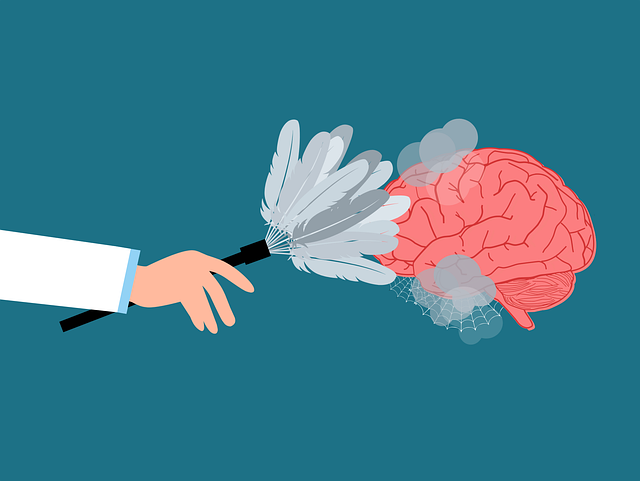Lakewood Crisis Counseling Therapy leverages positive thinking as a powerful tool for enhancing mental health and well-being, particularly in high-stress professions like healthcare. Through tailored counseling sessions combining modern psychology with ancient mindfulness techniques, they empower individuals to cultivate optimistic mindsets, reduce stress, anxiety, and depression, and foster emotional balance. Their holistic approach includes compassion cultivation, cultural competency training, and burnout prevention strategies, tracking progress, and setting clear goals for continuous improvement, ultimately supporting clients' mental health and preparing them to better handle future crises.
Discover the transformative power of positive thinking with our comprehensive guide. We explore how Lakewood Crisis Counseling Therapy leverages positivity to enhance mental well-being, offering a roadmap for counselors and therapists to design and implement effective exercises. From understanding the profound impact of positive thinking on mental health to tracking progress, this article provides practical tips for integrating these practices into therapeutic settings. Enhance your approach with evidence-based strategies inspired by Lakewood’s expertise.
- Understanding Positive Thinking and its Impact on Mental Health
- The Role of Lakewood Crisis Counseling Therapy in Promoting Positivity
- Designing Effective Positive Thinking Exercises
- Implementing the Exercises: Tips for Counselors and Therapists
- Tracking Progress and Measuring Success in Positive Thinking Initiatives
Understanding Positive Thinking and its Impact on Mental Health

Positive thinking is a powerful tool that can significantly impact mental health and overall well-being. It involves cultivating an optimistic mindset, focusing on the positive aspects of life, and reframing negative thoughts into more constructive ones. This simple yet profound practice has been shown to reduce stress, anxiety, and depression, fostering resilience and emotional balance. By encouraging individuals to believe in their abilities and view challenges as opportunities for growth, positive thinking can enhance self-esteem and promote a sense of hopefulness.
At Lakewood Crisis Counseling Therapy, we recognize the profound effect that positive thinking can have on mental health, especially in today’s fast-paced and demanding world. Healthcare providers, in particular, often face high-stress environments and may be at risk for burnout. Implementing compassion cultivation practices and healthcare provider cultural competency training, alongside burnout prevention strategies for healthcare providers, can contribute to a more positive and resilient mindset. These approaches empower individuals to navigate life’s challenges with greater equanimity, ensuring they are better equipped to support others while maintaining their own mental health.
The Role of Lakewood Crisis Counseling Therapy in Promoting Positivity

Lakewood Crisis Counseling Therapy plays a pivotal role in fostering positive thinking and emotional well-being. Through tailored counseling sessions, individuals gain valuable tools to navigate life’s challenges with resilience. The therapy focuses on helping clients identify negative thought patterns and replace them with more positive and realistic perspectives. This process is crucial for managing stress and anxiety, which are common issues that can significantly impact daily functioning.
By employing evidence-based techniques, Lakewood Crisis Counseling Therapy offers a supportive environment where individuals can explore their emotions and develop coping strategies. These strategies aim to enhance self-awareness, build confidence, and promote overall mental health. The therapy’s effectiveness lies in its ability to empower clients with the skills needed to maintain a positive mindset, thereby improving their quality of life and enabling them to better handle future crises.
Designing Effective Positive Thinking Exercises

When designing positive thinking exercises, it’s crucial to tailor them to individual needs and preferences. At Lakewood Crisis Counseling Therapy, our approach focuses on creating engaging and personalized activities that target specific goals. For instance, for those seeking a confidence boost, role-playing scenarios or affirmations practices can be highly effective. These exercises empower individuals by providing them with tools to reframe negative thoughts and cultivate a more positive mindset.
Incorporating mindfulness meditation into these sessions further enhances the benefits. Mindful practices teach participants to stay present, observe their thoughts without judgment, and cultivate inner strength development. By combining this ancient technique with modern psychological principles, Lakewood Crisis Counseling Therapy offers transformative experiences that equip individuals with lasting coping mechanisms for navigating life’s challenges.
Implementing the Exercises: Tips for Counselors and Therapists

Implementing positive thinking exercises requires a structured approach for counselors and therapists at Lakewood Crisis Counseling Therapy. First, create a safe and supportive environment where clients feel comfortable expressing their thoughts and emotions openly. Incorporate a variety of exercises tailored to individual needs, ensuring each session is engaging and impactful. For instance, start with simple breathing techniques to promote relaxation and mindfulness. Gradually introduce more advanced practices like positive affirmations or cognitive restructuring activities.
Additionally, integrate emotional regulation techniques into the routine to help clients manage stress and anxiety effectively. Regularly assess progress and adjust strategies accordingly. By combining these approaches, counselors can facilitate meaningful changes in mindset, enhancing mental wellness while preventing burnout among healthcare providers. Remember, consistent practice and a holistic approach are key to reaping the benefits of positive thinking exercises.
Tracking Progress and Measuring Success in Positive Thinking Initiatives

Tracking progress and measuring success are vital components of any positive thinking initiative, especially when implementing exercises that promote well-being. At Lakewood Crisis Counseling Therapy, we emphasize the importance of setting clear goals and regularly assessing client development. This involves using various methods to gauge improvements in mental health and overall outlook on life. By establishing measurable objectives, professionals can adapt their strategies and ensure they align with individual needs.
For instance, a positive thinking exercise might focus on cultivating gratitude, and success could be measured by the frequency of expressions of thankfulness or improvements in sleep patterns, indicating reduced stress levels. Effective tracking also involves self-care routine development for better mental health, as encouraged in Mental Health Awareness campaigns. Regular check-ins, journaling, and feedback sessions are powerful tools to monitor progress, fostering a culture of continuous improvement within the practice, while also benefiting from Risk Management Planning for Mental Health Professionals.
The implementation of positive thinking exercises, as facilitated by Lakewood Crisis Counseling Therapy, offers a powerful tool for enhancing mental health. By understanding the impact of positivity and designing effective exercises, counselors and therapists can empower individuals to navigate life’s challenges with greater resilience. Through structured guidance and tracking progress, these initiatives have the potential to revolutionize well-being, fostering a more optimistic and fulfilling lifestyle.














